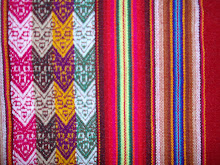和製英語 wa-sei eigo Japanese-made English
Any 外人 (remembering any of these characters yet? I told you there'd be a test later...) gaijin living in Japan, especially those from the English-speaking world, will at once have their sense of their own native language completely assaulted. I don't think there are many other ways I can comment on this phenomenon but by simply giving you a few good examples of true, living 和製英語 wa-sei eigo Japanese-made English. Some will make you roll with laughter, some will simply fill your head with "Huh?" The teacher in me says that perhaps I should make you match up the 和製英語 wa-sei eigo Japanese-made English phrase in Column A with the correct English equivalent in Column B. We'll see.So, here we go. If you decide to try to actually utter some of the phrases, remember to keep the vowels constant (a=ah, i=ee, u=oo, e=eh and o=o). All consonant+vowel combinations create a single syllable; Japanese is really not as hard to pronounce as most other languages. So there is your first Japanese lesson and your first 5 letters of the Japanese alphabet to boot!
Food products:
-Pocari Sweat (gatorade-type drink often sold in vending machines)
-Creap (creamer you put in your coffee)
-bata (butter)
-furaido poteto (french fries) at Makudonarudozu (McDonald's), of course (that one took me three years to master)
Anything with the word "city" morphs as the "si" sound does not exist in Japanese...it becomes "shi-". So in an effort not to be profane on this site, please say the following out loud, using "shi-" in the place of "ci-":
1. New Yo-ku city
2. Citibank
3. Pure-zu sito down. (please sit down)
The differentiation between "l" and "r" is very hard for the Japanese to master. Translate the following:
1. Eric Crapton
2. Za erection ofu Puresidento Curinton (my era of being there, so dang appropriate)
3. Arufu (big TV star in Japan, one of the most popular shows along with #4)
4. Furu Hous-u
Logos:
Lets SPORTS yOUNG gAY CluB
Happy Time Card Dick (ATM card)
Other goodies:
1. amefuto (American Football)
2. apa-to (apartment)
3. baiku (motorcycle, NOT bicycle)
4. baikingu (smorgasbord) viking
5. basujjakku (bus-jacking, like a car-jacking)
6. bebika- (stroller-baby car)
7. cheriboi (a male virgin) cherry boy
8. pinchi (a pinch, a dangerous situation)
9. resutoran (restaurant)
10. sa-bisu (a freebie) service
11. suma-to (looking sharp) smart
My test to see that I had actually mastered sounding enough like a Japanese person perhaps occurred in my third year in Japan. I don't eat McDonald's hamburgers, but at the time I would travel miles and kilometers for a chocolate shake and fries. Which I did, driving all the way into the city of 渋川 Shibukawa for my heart's desire. Deciding this time to go through the drive-thru, I placed my order and made my way around the building to the pick-up window. There, the lady almost dropped my order when she saw I was a 外人 and she made a comment, something about how surprised she was.
I drove away, chokore-tto she-ki and furaido potetto in hand, most satisfied...in more ways than one.

No hay comentarios:
Publicar un comentario